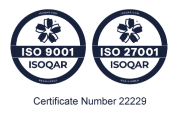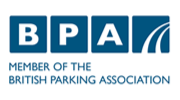Could renewed focus on clean air change perception and fuel the adoption of public transport?
Like most countries, the UK is emerging from the pandemic at an environmental crossroads. During lockdown there was a 42% decrease in the UK’s surface-level nitrogen dioxide (NO2). City-dwellers tasted relatively clean air for the first time in a generation, and with the climate crisis now making regular front-page news and air pollution beginning to take a measurable toll on people’s health, it is unlikely people will want to turn back the clock. Public transport providers and policy makers must turn this sentiment to their advantage if they are to win the hearts and minds of the general public.
Earlier this year, Imperial Civil Enforcement Solutions and Trapeze Group hosted two roundtables with a variety of subject matter experts on this topic. The group consensus was clear: we have a chance to position public transport as a champion of clean air, but the window to act is preciously small. In this article we explore some of the challenges, opportunities and solutions outlined in the roundtable sessions.
Changing the narrative
Public transport is a massive piece of the clean air puzzle, but the government response to the pandemic understandably undermined confidence, setting attitudes back decades. A recent survey by Transport Focus revealed that more than a third of people would “never again feel completely safe” on public transport. If public transport is to play its part in cleaning up the air in our towns and cities, we must turn this around. Could our renewed focus on clean air itself kick-start this modal shift?
Clean air as an incentive
Air quality in the UK has already gone beyond the so-called ‘tipping point’. Following an inquest this year, nine-year-old Ella Adoo-Kissi-Debrah was the first person in the UK to have ‘air pollution’ listed as a cause of death. This has brought air quality to the fore of public debate. In fact, in a recent survey, nearly 80% of all Londoners said that air quality should be a top priority for political leaders. Clean air enforcement and public transport in major cities are two key parts of the solution, but only if we change perceptions and bring the traveling public with us, with the help of technology, education and leadership.
Enforcement is a necessary start
While congestion charges can be divisive, there is strong evidence that such policies have a big impact on air quality locally without relocating the problem elsewhere. London’s Low Emission Zone, in place since 2008, has since been extended with the Ultra-Low Emission Zone, with other cities like Bath, Birmingham, Newcastle and Glasgow joining the trend. The enforcement technology is in place and already having a positive impact: evidence from London, which has the longest experience of clean air zones, shows a marked modal shift away from cars to trains, tube and buses.
Hearts and Minds
The quality of the air we breathe is too important to be dismissed as a tax on driving. Creating disincentives for private cars does help to reduce emissions, but alone won’t win the hearts and minds of people when it comes to adopting public transport. For that, we need to position buses and trains as a value-add rather than simply the ‘least worst’ alternative. People drive because it is convenient, and through the pandemic at least, perceived as being safer. In order to encourage people to choose public transport of their own accord, we must use the technology that’s available to make it a more worthwhile option, tapping into concerns around air quality and convenience.
Going the extra mile
In London, where passenger fares represent over 70% of Transport for London (TFL)’s income, the pandemic has been especially difficult to manage. Contactless payment systems, rigorous cleaning and allowances for social distancing make travel safer – but is this enough to undo the relentless “stay at home” mantra that turned so many off public transport?
It boils down to individual risk, and if air quality is at the forefront of people’s minds, public transport networks around the country can leverage this to their advantage using data-driven technology to offer individuals safer and cleaner ways to travel. For instance, as well as using air filtration and ventilation systems on buses, what if we also tracked air quality at bus stops at particular times? If we invest in technology that enables people to put their health first and individually assess their own risk, perhaps they will start to take the bus more often.
Technology nudge
Clean Air Zone (CAZ) information portals and journey planners could also be used to influence or nudge traveller behaviour. Imagine a scenario where a driver is either planning a journey into a CAZ, or pre-booking permission to enter one. The information portals could use the planned journey information to suggest alternative sustainable options, including a combination of interchanges, parking reservations, public transport and active travel – all of which could be effortlessly booked and paid for via the same application.
By all accounts, the time to act is now. According to a recent study by Imperial College London, air pollution in England alone could cost the UK economy as much as £5.3 billion per year by 2035, ranking it level with the obesity crisis in terms of public health and cost to the NHS. Instead of vilifying car users and pursuing electric vehicles – which will do little to reduce congestion and place excessive demand on the power grid – governments and business leaders need to collaborate, share experience and make the most of available technology. Clean air is a strong incentive. Let’s make it easier and safer for the traveling public to make the right choices.
This topic is covered in more depth in a white paper published by Imperial and Trapeze Group, which can be accessed at https://www.imperial.co.uk/clean-air-after-covid-19/
Company Registration Number: 02023383 ¦ Registered Office Address: Century House, 1 The Lakes, Northampton, NN4 7HD





